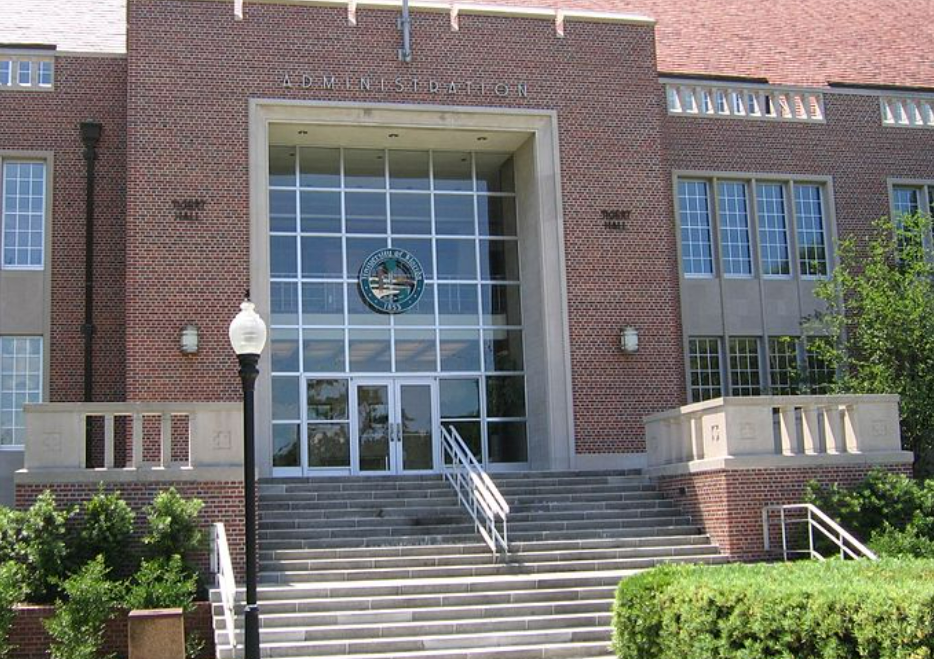On Monday around 9:30 a.m., University of Florida honors students received a surprising email from Mark Law, longtime director of the UF Honors Program, stating he had been terminated from his position as director of the UF Honors Program, effective that same day. He was allegedly given no explanation.
Law learned about the change over coffee with the associate provost for undergraduate affairs, Angela Lindner. At the moment, Law plans to remain a tenured professor at UF in the Herbert Wertheim College of Engineering after taking a sabbatical.
He has served as the Honors Program director since 2014, his most recent role in a career spanning more than 33 years at UF.
According to his Monday morning email, Law’s termination was decided by the UF Board of Trustees. This group of 13 men and women, predominantly men, approves UF’s final budget and any major new initiatives as proposed by the university president or their administration.
This managing organization doesn’t just exist at UF. As of 2003, every public university in Florida has a board of trustees per Title XLVIII, Chapter 1001, Part IV of Florida Statutes.
Five trustees are appointed by the Florida Board of Governors, the statewide governing body of Florida universities. Another six are chosen by the governor of Florida. The two remaining members on each board are the student body president and a leader among the faculty, often from a faculty senate.
On why the Board of Trustees took this extreme and unexplained action, Law told the Florida Political Review, “I have no clue and I really wish I knew more.” Looking at the message this sends to the campus community, Law says, “Personally, I think this is kind of chilling.”
On GatorEvals, UF’s internal rating program for students to rate their professors, Law has consistently rated extremely high on all metrics. Despite this and his long-standing role with the honors program, Law sees no path forward in engaging with the Board of Trustees. Looking ahead, he says, “There is no point in fighting.”
Concerns over lack of expertise in boards of trustees
Many Florida trustees do not have a background in research, education or academic policy. Others are not alumni of the university whose board they are on.
FGCU’s appointed chair is the CEO of a property management company and the vice chair is a managing director of an investment firm. Their other appointed members include a ‘school choice’ advocate, a stock trader, a venture capital firm leader, two lawyers specializing in corporate finance, a bank executive and the president of a hardware company.
Only two have a professional history closely related to an academic institution — a teacher and the leader of a research company (a real estate and investment company).
While it is okay to have some heavy hitters from the finance world on your board who can help lobby for your university, it seems like more of the members should have a professional and educational history in academic affairs.
This questionable makeup is not limited to the FGCU Board of Trustees.
Most board chairs or vice chairs are not alumni of their respective universities. Exceptions include the leadership of FAMU, UWF and NCF who are alumni. FSU leads Florida universities with many members being alumni; only three at UF appear to be alumni.
Concerns over political ties
Beyond the mixed-to-poor professional experience or historic ties to their universities, current trustees also tend to be big conservative donors.
Since the creation of the State University System in 2003, every governor has been a Republican. Their appointees frequently reflect their political leanings.
While trustees are entitled to their political voice like any American, it is somewhat concerning given their roles in the state education system. Many Republicans want to defund the Department of Education and there have been attacks on academic freedom from Florida’s governor and the Florida Legislature.
Looking at data collected by FollowTheMoney.org and the Federal Elections Commission can help give insight.
Of the chairs across Florida’s 12 public universities, ten have given approximately $171,000 collectively to members of the Florida Republican Party. A total of nearly $385,000 has been given directly to Republican candidates from the local to the federal level, in addition to $47,000 to Ron DeSantis’ 2022 reelection campaign.
In total, $46,000 has been given to Democratic candidates or organizations.
The most liberal of all the Florida chairpeople was Suzanne Lewis of UWF who has only contributed to Hillary Clinton.
UF Chair Mori Hosseini is one of the biggest spenders of all the trustees, having recently given $5,000 to Frontline Patriots, $5,000 to Warrior Diplomat PAC and $25,000 to the Servant Leadership Fund — all GOP-aligned PACs based on FEC data.
He has given more than $452,000 to Republican individuals or groups. His board is the same one that fired Law.
The UF Board of Trustees is currently heading a search for a new university president, despite historically being at the center of controversy. Given all we have examined, it is not surprising that 70% of UF faculty members are not confident that the new president will prioritize academics.
The remedy
Currently, structural reform of the board of trustees system is the best approach.
Trustees are tasked with governing public entities. As such, they should be more democratically elected by their respective universities’ students, staff and faculty.
The election of the Board of Governors’ members may inject much-needed public oversight as well.
At minimum, there should be a prohibition on the appointment of donors to campaigns as trustees. There should also be express qualifications to ensure the candidates for these critical leadership roles are experienced in university administration.
Whatever solution is taken, the current system is rife with issues that must be urgently mended by whomever holds Florida’s leadership roles after the November election.
Check out other recent articles from the Florida Political Review here.
Featured Image: Tigert Hall, the administrative hall of UF, where the next University President will work, used under CC-BY-2.0, available at (bit.ly/3Ao3PYm)





